
During puberty, hormonal changes can cause numerous skin concerns for teenagers, such as acne, hyperpigmentation, and increased sensitivity.
These issues can impact self-confidence and self-esteem, making it essential for adolescents to develop a tailored skincare routine.
In this article, we will explore some of the most common skin concerns during teenage years and provide practical solutions to help teenagers address and manage them.
By understanding these concerns and using appropriate products, teens can feel empowered to embrace a healthy and confident approach to skincare. (See Amazon) Let’s dive in.
Hormonal Changes
When it comes to teenage skin, one of the most influential factors is the surge in hormonal activity that occurs during puberty.
These hormonal changes can lead to overactive oil glands, resulting in increased sebum production.
As a consequence, the skin is more prone to acne breakouts.
Additionally, the fluctuation in hormone levels can impact the skin’s texture and sensitivity, leading to concerns such as dryness, oiliness, or increased vulnerability to environmental stressors.
It’s important for teenagers to understand these changes and how to adapt their skincare routine to effectively address them.
During puberty, the body undergoes a significant transformation, and the skin is no exception.
The increased androgen levels can stimulate the sebaceous glands, causing an uptick in oil production.
This can contribute to the development of acne, as the excess oil can clog pores and create an environment conducive to the proliferation of acne-causing bacteria.
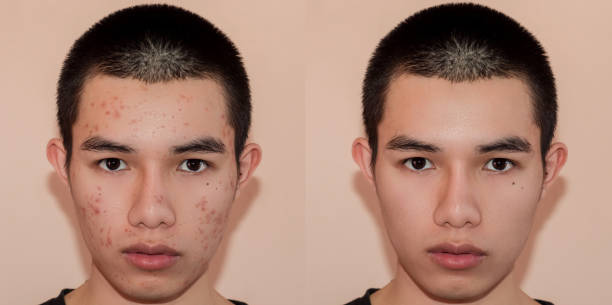
Furthermore, hormonal fluctuations can affect the skin barrier, which may result in increased sensitivity and potential reactivity to certain skincare products or environmental irritants.
Therefore, it’s crucial for teenagers to be mindful of these hormonal changes and their impact on the skin.
Adolescents may also experience hormonal acne, which is different from the common form of acne.
Hormonal acne is often characterized by deep, tender, and inflamed papules, and it typically appears on the lower half of the face.
This type of acne is directly linked to hormonal fluctuations and can be particularly challenging to manage.
Understanding the specific nature of hormonal acne (See Amazon) and its association with puberty is essential in determining the most effective and targeted treatment and skincare approach for teenagers
experiencing this condition.
As a result of hormonal changes, some teenagers may find that their skin becomes more oily, leading to concerns about shine and excess sebum.
This increased oiliness can also contribute to a greater likelihood of developing acne.
In addition, the skin’s response to these hormonal fluctuations can vary, with some individuals experiencing increased dryness and flakiness, especially in areas such as the cheeks.
Recognizing these diverse effects is important in tailoring skincare routines to address specific concerns related to hormonal changes and their impact on teenage skin.
The hormonal fluctuations that occur during the teenage years can have a profound effect on the skin, leading to changes in oil production, texture, and sensitivity.
These shifts can influence the development of acne and other skin issues, highlighting the importance of tailored skincare regimens that take into account the specific needs of teenage skin.
Acne
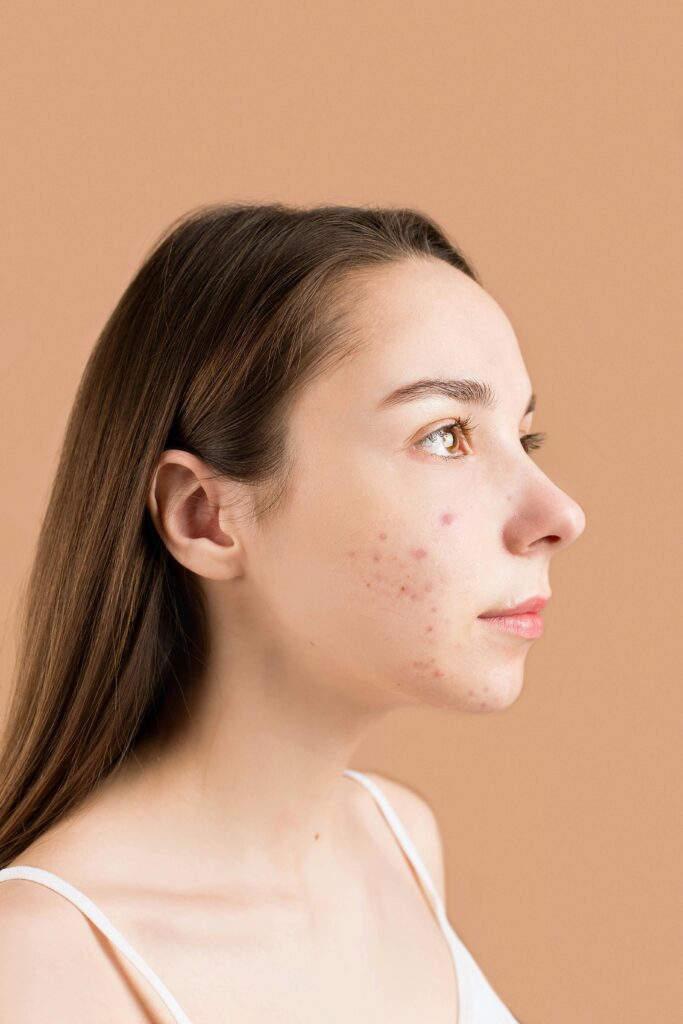

Acne is a pervasive and often distressing skin condition that affects a significant number of teenagers.
It can manifest in various forms, including blackheads, whiteheads, papules, pustules, and cysts, and may occur on the face, neck, chest, back, and shoulders.
The development of acne is closely linked to factors such as hormonal changes, excess oil production, and the proliferation of acne-causing bacteria.
Understanding the underlying causes of acne is crucial in effectively addressing and managing this common skin concern among teenagers.
Dealing with acne during the teenage years can be particularly challenging, given the physical and emotional impact it can have on individuals.
From a physical standpoint, acne can result in skin inflammation, pain, and the potential for scarring.
Socially and emotionally, it can lead to reduced self-esteem, feelings of self-consciousness, and even social withdrawal.
Given these multifaceted effects, it is important for teenagers to have access to reliable information about acne and the available treatment options, empowering them to make informed decisions about their skincare and seek professional guidance when needed.
It’s important to emphasize that acne is a treatable condition, and there are various effective approaches and products for managing and mitigating its impact on the skin.
From gentle cleansers (See Amazon) and non-comedogenic moisturizers (See Amazon) to specialized acne treatments containing ingredients like benzoyl peroxide and salicylic acid, (See Amazon) there is a wide range of skincare products specifically formulated to target acne and promote clearer, healthier skin.
Encouraging teenagers to establish a consistent skincare routine with products tailored to their skin type and concerns is an essential step in empowering them to proactively address acne and its effects on their skin.
In cases where acne is more persistent or severe, it is important for teenagers to seek the guidance of a dermatologist.
A dermatologist can provide personalized recommendations and treatment plans, which may include prescription-strength topical or oral medications, in-office procedures, or other targeted interventions to address acne effectively.
By engaging with a dermatologist, (See Amazon) teenagers can access specialized care and support to manage their acne and work towards achieving clearer, more resilient skin, ultimately promoting their overall well-being and confidence.
Empowering teenagers with the knowledge and resources to address acne not only supports their skin health but also contributes to their self-assurance and quality of life.
By fostering an understanding of acne and promoting proactive skincare practices, individuals can navigate the challenges associated with acne and develop a positive and confident relationship with their skin.
Sensitive Skin Care Acne
Hyperhidrosis
Hyperhidrosis, (See Amazon) or excessive sweating, is a common concern that can significantly impact the daily lives of teenagers.
This condition is characterized by the production of sweat beyond what is necessary for regulating body temperature, and it can occur in various areas of the body, such as the underarms, palms, and soles of the feet.
Teenagers experiencing hyperhidrosis may struggle with feelings of self-consciousness, discomfort, and social anxiety, particularly in social or public settings.
Understanding and addressing hyperhidrosis is important in supporting the comfort and confidence of individuals navigating this condition.
Experiencing hyperhidrosis during the teenage years can be particularly challenging, as it coincides with a period of heightened self-awareness and social interactions.
The impact of excessive sweating on clothing, physical activities, and social interactions can lead to feelings of embarrassment and reduced self-esteem.
It’s crucial for teenagers to have access to information about hyperhidrosis and the available strategies for managing and minimizing its effects, empowering them to take proactive steps towards greater comfort and confidence.
There are various approaches and products that can help teenagers address hyperhidrosis and reduce excessive sweating.
Antiperspirants (See Amazon) Containing aluminum chloride (See Amazon) are commonly used to manage localized sweating in areas such as the underarms, hands, and feet.
These antiperspirants work by effectively reducing sweat production, providing relief and greater confidence for individuals dealing with hyperhidrosis.
In more severe cases, treatment options such as botulinum toxin injections or oral medications may be recommended to address excessive sweating and enhance the quality of life for teenagers experiencing this condition.
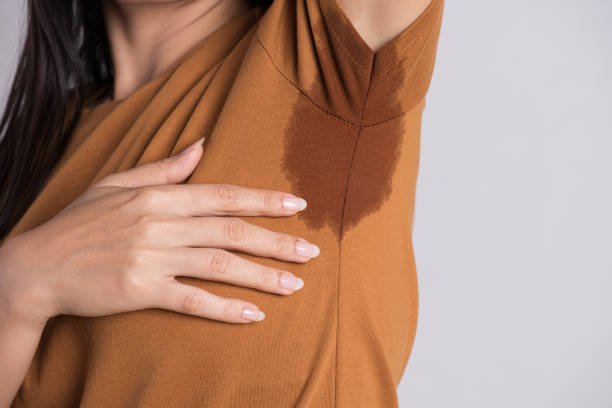
Empowering teenagers with the knowledge and resources to address hyperhidrosis not only supports their physical comfort and well-being but also contributes to their overall confidence and sense of empowerment.
By promoting awareness of hyperhidrosis and the available strategies for managing it, individuals can navigate this condition with greater resilience and a positive outlook, ultimately enhancing their quality of life and self-assurance.
Understanding the specific needs and concerns associated with hyperhidrosis is essential in providing teenagers with the support and guidance they need to effectively manage excessive sweating and its impact on their daily lives.
Hyperpigmentation
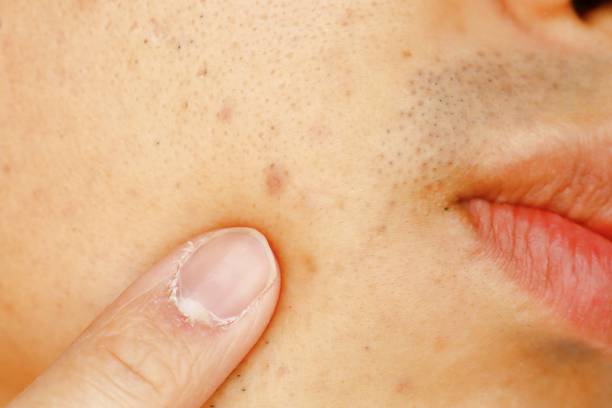
Hyperpigmentation (See Amazon) is a common skin concern that can affect teenagers, particularly in the form of post-inflammatory hyperpigmentation resulting from conditions such as acne or eczema.
This condition is characterized by the appearance of darkened patches or spots on the skin, which can persist for an extended period.
Hyperpigmentation can have a significant impact on the complexion and self-esteem of individuals, underscoring the importance of effective strategies for managing and minimizing its effects on the skin.
Dealing with hyperpigmentation during the teenage years can be a source of frustration and concern, as the visible effects of dark spots or patches may affect self-confidence and overall satisfaction with one’s skin.
It’s important for teenagers to be informed about the nature of hyperpigmentation, its potential causes, and the available approaches for addressing and reducing its appearance.
Empowering individuals with this knowledge can help them take proactive steps towards managing hyperpigmentation and promoting a clearer, more uniform complexion.
Skincare products containing ingredients such as vitamin C (See Amazon), niacinamide (See Amazon), and retinoids (See Amazon) can be beneficial in addressing hyperpigmentation and supporting an even skin tone.
These ingredients work to inhibit melanin production, promote skin cell turnover, and diminish the appearance of dark spots, contributing to a brighter and more radiant complexion.
By incorporating targeted products with these ingredients into their skincare routine, teenagers can take positive steps towards reducing the visibility of hyperpigmentation and supporting the overall health and appearance of their skin.
In addition to topical treatments, sun protection plays a crucial role in managing and preventing the exacerbation of hyperpigmentation.
Regular use of broad-spectrum sunscreen (See Amazon) with a high SPF can help shield the skin from the harmful effects of UV radiation, which can contribute to the darkening of existing hyperpigmented areas and the development of new discoloration.
By integrating sun protection into their daily skincare regimen, teenagers can effectively safeguard their skin and minimize the impact of hyperpigmentation, promoting a more luminous and even complexion.
Empowering teenagers with the knowledge and resources to address hyperpigmentation not only supports their skin health and confidence but also cultivates a proactive and positive approach to skincare.
By promoting awareness of hyperpigmentation and the available strategies for managing and reducing its appearance, individuals can take control of their skin’s well-being and embrace a clearer, more radiant complexion with enhanced self-assurance and pride.
Sensitive Skincare Teenage
Sunburn and Sun Sensitivity
Protecting the skin from sun damage is a fundamental aspect of skincare, especially during the teenage years when sun exposure and outdoor activities are prevalent.
Sunburn and heightened sun sensitivity can pose significant risks to the health and appearance of the skin, making sun protection an essential consideration for teenagers seeking to maintain and enhance their skin health.
Excessive sun exposure can lead to sunburn, characterized by redness, pain, and peeling of the skin, and can increase the risk of long-term damage, including premature aging and skin cancer.
Teenagers, in particular, may be more susceptible to the harmful effects of the sun due to their active lifestyles and outdoor pursuits.
It’s important to instill the habit of sun protection early on, emphasizing the use of broad-spectrum sunscreen (See Amazon), protective clothing, and seeking shade during peak sun intensity to reduce the risk of sunburn and long-term skin damage.
In addition to sunburn, some individuals, including teenagers, may experience heightened sensitivity to the sun, a condition known as photosensitivity.
This can be triggered by factors such as certain medications, skincare products, or underlying medical conditions.
Individuals with sun sensitivity may be more prone to developing rashes, redness, or other adverse skin reactions upon sun exposure.
Understanding and addressing sun sensitivity is crucial in empowering teenagers to protect their skin and enjoy outdoor activities with greater comfort and confidence.
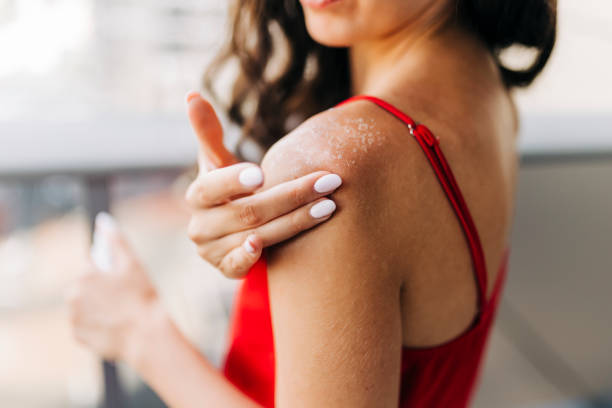
Incorporating sun protection measures into a daily skincare routine can help teenagers mitigate the risks associated with sunburn and sun sensitivity.
This includes using sunscreen with a sun protection factor (SPF) of 30 or higher, seeking shade during peak sun hours, wearing protective clothing, and utilizing wide-brimmed hats (See Amazon) and sunglasses (See Amazon) to shield the skin and eyes from UV radiation.
By adopting these proactive sun protection practices, teenagers can safeguard their skin from the harmful effects of sun exposure and promote their long-term skin health and resilience.
Empowering teenagers with the knowledge and resources to protect their skin from sunburn and sun sensitivity is essential in fostering lifelong sun-safe habits and promoting the long-term health and beauty of their skin.
By cultivating an understanding of sun protection and its role in skin health from an early age, individuals can enjoy the benefits of a healthy and resilient complexion for years to come.
Dandruff
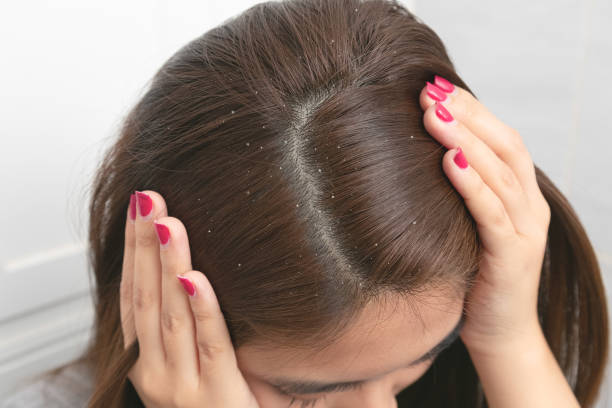
Dandruff is a common scalp condition characterized by the shedding of dead skin cells, often resulting in flaking and itching.
While dandruff is more frequently associated with adults, teenagers can also experience this scalp concern, which can be attributed to factors such as hormonal changes, stress, and the use of certain hair care products. (See Amazon)
Understanding the nature of dandruff and adopting effective strategies to manage and minimize its effects is important in supporting the scalp health and overall well-being of teenagers.
Dealing with dandruff during the teenage years can be a source of discomfort and self-consciousness, particularly if the condition is visible on the hair and clothing.
The persistent itching and flaking associated with dandruff can be disruptive and distressing, impacting the daily comfort and confidence of individuals.
It’s essential for teenagers to be informed about the potential causes of dandruff and the available approaches for addressing and mitigating its effects, empowering them to maintain a healthy and balanced scalp.
Utilizing specialized anti-dandruff shampoos containing ingredients such as zinc pyrithione,(See Amazon) selenium sulfide,(See Amazon) or tea tree oil (See Amazon) can be an effective strategy in managing dandruff and reducing flaking and itching.
These shampoos work to target the underlying factors contributing to dandruff, such as the proliferation of Malassezia yeast or the accelerated shedding of skin cells, promoting a healthier scalp environment.
By incorporating anti-dandruff shampoos into their regular hair care routine, teenagers can proactively address dandruff and support the overall cleanliness and comfort of their scalp.
In addition to using anti-dandruff shampoos, maintaining good hair and scalp hygiene, managing stress levels, and avoiding excessive use of styling products can also contribute to the effective management of dandruff.
By adopting a holistic approach to scalp care and implementing targeted strategies to address dandruff, teenagers can minimize its impact and maintain a balanced and comfortable scalp environment, supporting their overall well-being and confidence.
Empowering teenagers with the knowledge and resources to address dandruff not only supports their scalp health and comfort but also fosters a proactive and positive approach to personal care.
By promoting awareness of dandruff and the available strategies for managing and reducing its effects, individuals can navigate this common scalp concern with resilience and confidence, ultimately promoting a balanced and healthy scalp environment.
Sensitivity Skin Teenager Dandruff
Atopic Dermatitis (Eczema)
Atopic dermatitis, commonly known as eczema (See Amazon), is a chronic inflammatory skin condition that can manifest in childhood and persist into the teenage years and adulthood.
It is characterized by dry, itchy, and inflamed patches of skin, often appearing on areas such as the face, neck, and limbs.
In Black children, atopic dermatitis may present as hyperpigmented plaques, which can have unique considerations in terms of management and treatment.
Understanding the nature of atopic dermatitis and its specific manifestations is essential in providing effective care and support for teenagers experiencing this chronic skin condition.
Dealing with atopic dermatitis during the teenage years can be particularly challenging, as the visible and physical effects of eczema can impact self-esteem and quality of life.
The persistent itchiness and skin inflammation associated with atopic dermatitis can be distressing and disruptive, leading to discomfort and potential sleep disturbances.
It’s crucial for teenagers with eczema to have access to comprehensive information about the condition, including triggers, management strategies, and available treatments, empowering them to take proactive steps towards minimizing its impact on their skin and overall well-being.
Treatment for atopic dermatitis may include the use of emollients (See Amazon) and moisturizers (See Amazon) to maintain skin hydration and reduce dryness and itching.
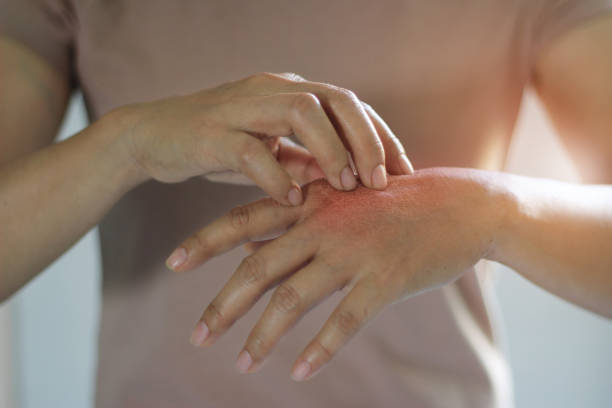
In cases of acute flares, topical corticosteroids (See Amazon) or non-steroidal anti-inflammatory (See Amazon) creams may be prescribed to alleviate inflammation and discomfort.
Additionally, in the context of atopic dermatitis affecting Black children, special considerations may be necessary to address hyperpigmented plaques and minimize the long-term effects on the skin’s appearance and health.
By seeking guidance from a dermatologist familiar with the unique aspects of atopic dermatitis in Black children, teenagers can access tailored care and support to manage this chronic skin condition effectively.
Managing atopic dermatitis also involves identifying and minimizing triggers that can exacerbate the condition, such as certain fabrics, environmental allergens, stress, and exposure to harsh skincare products.
By adopting a proactive and informed approach to eczema management, teenagers can reduce the frequency and severity of flares, leading to greater skin comfort and an improved overall quality of life.
Empowering teenagers with the knowledge and resources to effectively manage atopic dermatitis is essential in supporting their skin health, comfort, and confidence.
By promoting awareness of eczema and its specific considerations in the teenage population, individuals can navigate this chronic skin condition with resilience and a positive outlook, ultimately fostering a balanced and healthy relationship with their skin.
Sensitive Skin Teenage Atopic Dermatitis (Eczema)
Choosing Gentle Products
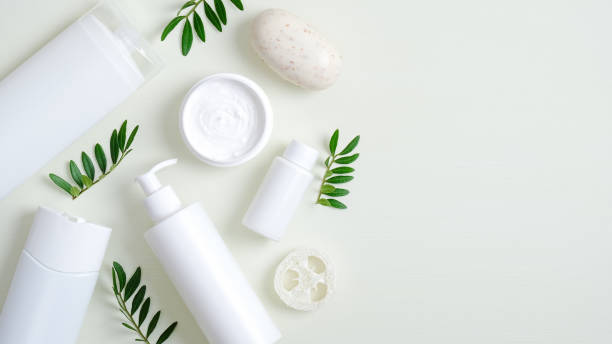
When it comes to addressing teenage skin sensitivity, choosing gentle and non-irritating skincare products is of paramount importance.
Teenagers with sensitive skin are more prone to reactions such as redness, itching, and discomfort, and using harsh or abrasive products can exacerbate these issues.
It’s essential for teenagers to select skincare products that are specifically formulated for sensitive skin and free from potential irritants such as fragrances, alcohol, and harsh preservatives, ensuring that their skincare routine supports and maintains the health and balance of their delicate skin.
Opting for mild and hypoallergenic cleansers,(See Amazon) moisturizers,(See Amazon) and sunscreens (See Amazon) can help teenagers with sensitive skin minimize the risk of adverse reactions and enhance the overall comfort and well-being of their skin.
These gentle products (See Amazon) are designed to cleanse, hydrate, and protect the skin without causing irritation or disrupting its natural balance, providing essential support for teenagers navigating the challenges of sensitive skin.
Furthermore, when selecting skincare products, teenagers with sensitive skin should look for beneficial ingredients known for their soothing and anti-inflammatory properties, such as aloe vera, (See Amazon) oat extract,(See Amazon) and chamomile. (See Amazon)
These natural and gentle components can help calm and nourish sensitive skin, reducing redness and reactivity while promoting a more resilient and comfortable complexion.
By incorporating these nurturing ingredients into their skincare routine, teenagers can optimize the care and support provided to their sensitive skin, minimizing the likelihood of adverse reactions and discomfort.
In addition to choosing gentle skincare products, it’s important for teenagers with sensitive skin to perform patch tests before incorporating new products into their routine.
Patch testing allows individuals to assess the potential reactivity of a product before widespread use, reducing the risk of widespread irritation or adverse effects.
By being diligent in their product selection and testing, teenagers with sensitive skin can proactively safeguard their skin from potential irritants and maintain a gentle and supportive skincare regimen that promotes their overall skin health and comfort.
Empowering teenagers with the knowledge and guidance to select gentle and supportive skincare products is instrumental in fostering a positive and proactive approach to addressing sensitive skin.
By promoting the selection of non-irritating and nurturing products, individuals with sensitive skin can establish a skincare routine that supports the well-being and balance of their delicate skin, ultimately leading to greater comfort, confidence, and a positive relationship with skincare.
Sensitive Skin Teenager Gentle Products
Developing a Skincare Routine
Developing a consistent and comprehensive skincare routine (See Amazon) is essential for teenagers seeking to address and manage the specific needs and concerns of their skin.
A well-rounded skincare regimen can provide essential support for maintaining skin health, addressing common concerns such as acne, hyperpigmentation, and sensitivity,
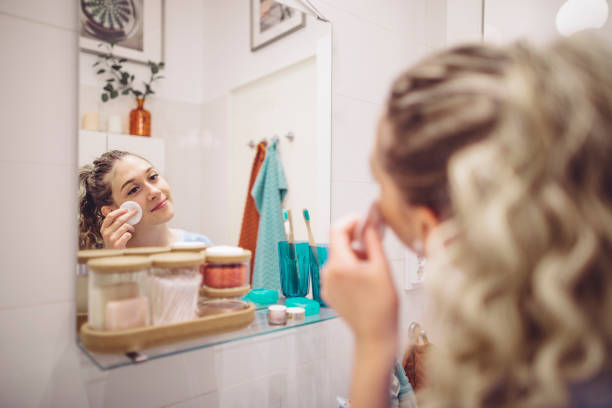
Conclusion
In conclusion, it’s important to address the specific skin concerns that arise during puberty, as these can affect a teenager’s self-esteem and overall well-being.
Understanding common issues such as acne, hyperhidrosis, and hyperpigmentation can help tailor a skincare routine that empowers teenagers to take care of their skin.
With proper guidance and gentle products, teenagers can establish healthy skincare habits that can help manage these concerns and improve the overall health and appearance of their skin.
